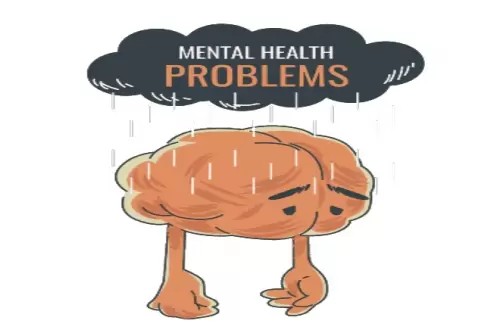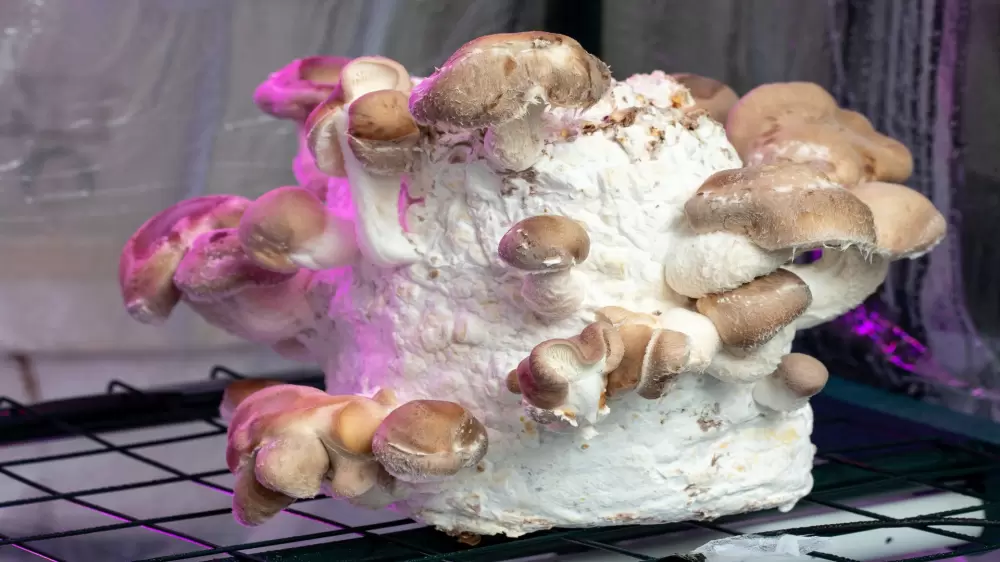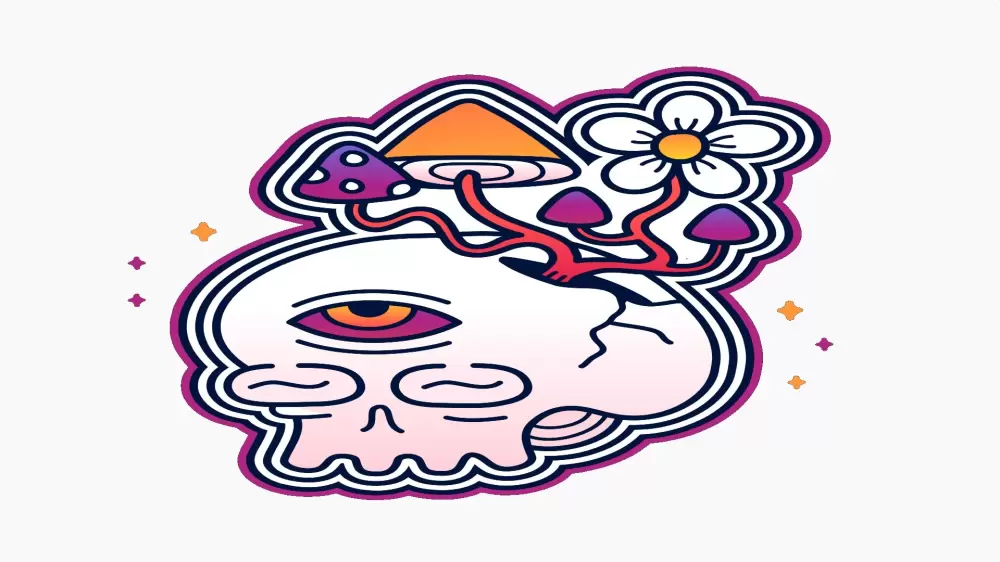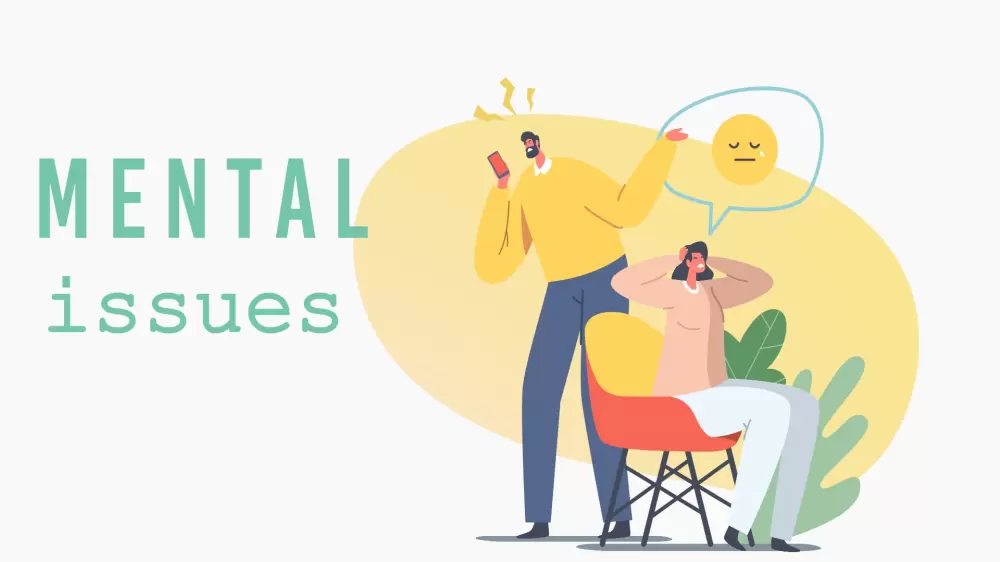RESEARCH INTO THE BENEFITS OF PSYCHEDELICS FOR MENTAL COMPLAINTS

Nowadays, the use of psychedelics for various disorders is no longer viewed so negatively, certainly not in the Netherlands. For example, there is the well-known medicinal weed and magic mushrooms are increasingly used for depression or anxiety. Psychedelics can have a beneficial effect on body and mind. However, it is important that we learn more about this. Fortunately, more and more research is being done into the possibilities of these resources. In this blog, we list which studies have been done into the benefits of psychedelics in mental complaints.
Growing interest in psychedelics
Not so long ago, psychedelics were generally viewed with a skewed eye. Research into the effects of these substances also came to a complete standstill, because most of them were classified as illegal. In recent years, there has been a turnaround. People are more open to the special effects of psychedelics (particularly psilocybin mushrooms) and for the impressive and spiritually tinged experiences you can get from it. Especially now that it appears that psychedelics may also help with various mental complaints.
In both the Netherlands and other parts of the world, researchers are receiving grants to learn more about the effects of psychedelics on mental disorders, from PTSD to addictions. For this purpose, substances such as magic mushrooms (psilocybin) or LSD are being investigated. But other substances can also cause improvements in complaints.
These psychedelics are known by another name as entheogens, substances that can bring us into contact with the divine. They can open the mind, restore our inner balance, completely change our view of the world. There are people who spontaneously get rid of their anxiety disorder, addiction or depression after a single trip with LSD. That's the power of psychedelics. Now there is finally room for research into this, so that we can find out what actually happens when you use such a drug.
Research into psychedelics for mental complaints
Psychedelics are part of human culture, we've been using them for thousands of years. From shamans who travel to the Underworld or Overworld to naturopaths who weed or magic mushrooms for illness of body or mind. In our modern society, we are actually rediscovering the healing power of psychedelics. Science is enthusiastically diving into the composition and effects of these agents, especially in mental disorders.
In the meantime, research has been done into the use of psychedelics in:
- Depression
- Addictions (alcohol, tobacco)
- OCD
- PTSD
- Anorexia
In 2017, research was conducted on psilocybin to help people quit smoking. It was a small-scale study, in which only 15 people participated. However, the participants were checked after 12 and 16 months. They received 2 to 3 high doses of psilocybin and cognitive behavioural therapy. After 12 months, 67% of the participants were still smoke-free, and 60% were still smoke-free after 16 months. These results are better than what is achieved with normal treatments, they have a success rate of 30%. Thirteen participants indicated 12 months after the start of the treatment that the psilocybin experience is among the top 5 of their most meaningful experiences.
The most commonly used drug is psilocybin (the mind-altering substance in magic mushrooms and truffles). LSD also has a lot of potential, but that drug has a more fraught history. Another advantage of psilocybin is that the effects do not last as long, making it practically easier to handle. A lot of research is also being done into substances such as ketamine, MDMA and ayahuasca. The results give hope.

Psychedelics and emotion regulation
Researcher Lafrance delved into other effects of psychedelics. She assumes that these resources deepen people's spirituality and improve emotion regulation. They therefore have a positive effect on mental health. People feel more connected and experience more meaning. Spirituality helps you deal with emotions better, claims Lafrance.
At this study, the participants already had experience with psychedelics. 159 people took part, of which 96% had already used psilocybin and 33% had experience with various substances. Now the participants were given psilocybin, ayahuasca or a placebo. After taking it, they completed a survey that included questions about spirituality and how they deal with emotions, as well as indicating whether they suffered from their emotions, anxiety, eating disorders, or depression.
The scientists analysed this data and concluded that those who had already had experience with psychedelics were more spiritually inclined and had fewer problems regulating their emotions. The people who filled in that they had more problems with emotion regulation, also scored higher on the facets of anxiety and depression. Thus, there was a clear link between emotion regulation and mental health. The better you can regulate your emotions, the better your mental health will be.
The possibilities of psychedelics for mental complaints
Mind-altering drugs also seem to be able to give good results in depression. While regular medication suppresses emotions, psychedelics help you to feel connected to yourself again. In an international study among 233 participants, people were given psilocybin or a placebo. Some of the patients who suffered from treatment-resistant depression did not suffer from depression at all after treatment, or the symptoms had drastically reduced.
Treatment with psychedelics can also provide many benefits for eating disorders and feelings of anxiety in terminal illnesses. Yet there are still many questions that need an answer, such as: does it work for everyone, what about the placebo effect and are there still risks? But the various studies will probably provide more clarity about this. There are even indications that mind-altering drug therapy will be included in health insurance within a few years.




















